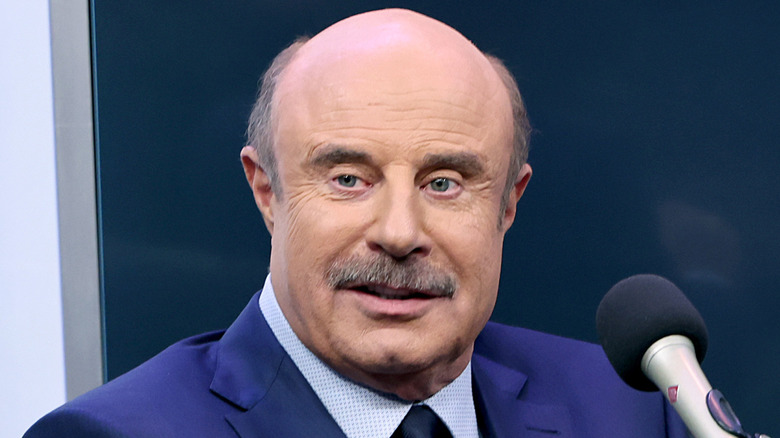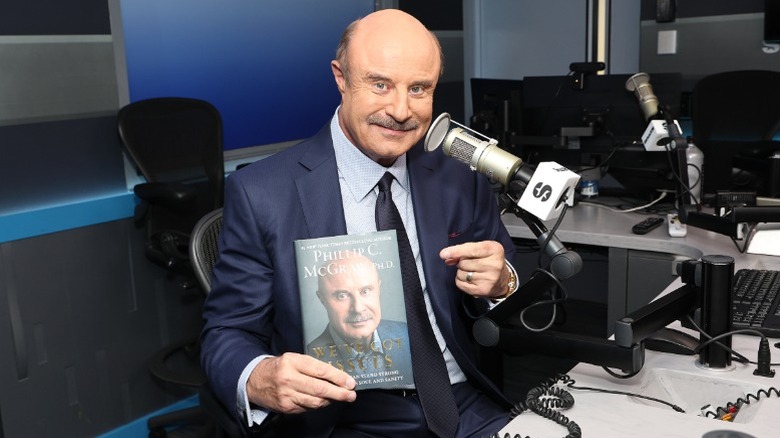Dr. Phil's Bankruptcy Scandal, Explained
What was supposed to be a match made in television heaven in 2023 quickly crumbled by October of 2025. When Dr. Phil McGraw — the titular host of the often aggressive "Dr. Phil" show — was looking to move away from CBS, he formed Merit Street Media with the help of the Trinity Broadcasting Network. Known for its religious programming like "Takeaways With Kirk Cameron," and even shows hosted by megachurch pastor Joel Osteen, the pairing of McGraw and TBN was most likely an indication of the direction the show was intended to go. However, barely two years after the 10-year deal worth $500 million was struck, it fizzled, landing McGraw in bankruptcy court and annoying the judge with his antics.
According to The Hollywood Reporter, McGraw has been making some shady moves behind the scenes. For starters, the day before Merit Street Media and McGraw filed for Chapter 11 protection, McGraw debuted a whole new content production company, Envoy Media, that appeared set to replace Merit Street Media and its partners. This sparked a back-and-forth series of court filings, with TBN suing to ensure that they will be able to reclaim the assets they've already invested in the Merit Street Media venture. This caused Judge Scott Everett, who's overseeing the filings, to claim, "This case is an anomaly." To make matters worse, there's evidence to suggest that McGraw was trying to keep information from the court.
Dr. Phil possibly attempted to delete incriminating text messages
While there's been several tragedies in Dr. Phil McGraw's life, the mess he'll be dealing with in bankruptcy court appears to be his own fault. When McGraw filed for Chapter 11 bankruptcy protection, it was a strategic move to be able to control the assets of Merit Street Media. According to Variety, McGraw had attempted to cover his tracks by deleting text messages that showed McGraw wanting to get off the hook for any money he owed Trinity Broadcasting Network. He seemingly intended to use Chapter 11 to pay himself over TBN.
If the move seemed like a good idea at the time, it certainly backfired on McGraw, as Everett ordered the bankruptcy proceedings to be swapped from Chapter 11 to Chapter 7 liquidation on October 28. Essentially, this will take control out of McGraw's hands and place an impartial trustee to manage the sale of the media company and its remaining assets.
At the core of the financial woes are claims from TBN that McGraw had oversold his viewership, underdelivered on product integration, and never actually produced an episode. As all of this might have McGraw sounding like a phony, it's a good time to note that the man behind "Dr. Phil" might not be a real doctor either. For his part, McGraw and his team have already filed an appeal, as well as claim that they've produced over 200 episodes of "Dr. Phil Primetime." With a case this murky, it's safe to say it'll be a long, messy fight — grab the popcorn.

